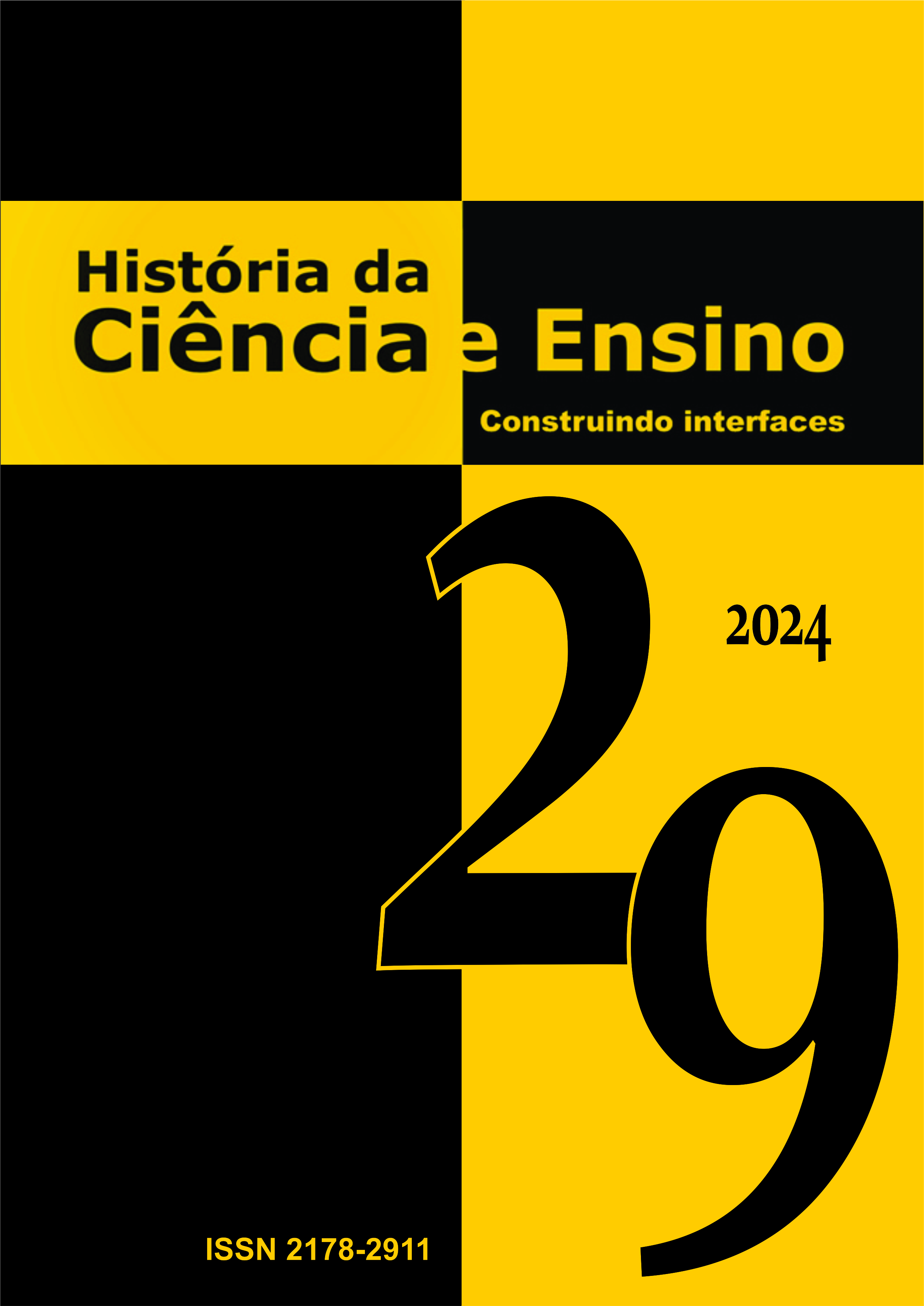Análise da aula de Marie Curie (1867-1934) para ensinar densidade para crianças sob a ótica de Isaac Watts (1674-1748)
DOI:
https://doi.org/10.23925/2178-2911.2024v29p101-115Keywords:
Experimentation, Marie Curie, Teaching CooperativeAbstract
The vision of Marie Curie regarding the teaching of natural sciences emphasized the importance of laboratory contact for true learning and understanding of phenomena. In 1907, in Paris, a group of scholars, inspired by Marie Curie, created a "cooperative of teaching" with the aim of offering physics classes on density, taught by her, drawing examples from "The Improvement of the Mind" by Isaac Watts (1741). This article analyzed sections of these classes, using the annotations of student Isabelle Chavannes and seeking support from the book "The Improvement of the Mind" by Isaac Watts. It was possible to perceive Marie Curie's concern with knowledge assimilation and that this should occur in a solid, durable, and contextualized manner, bringing characteristics expected of a good educator, such as care for scientific language, semiosis, the pursuit of knowledge evolution, contextualization, and dialectic.
References
Eve Curie. Madame Curie. Tradução de Monteiro Lobato. (São Paulo:1ª edição, Companhia Editora Nacional, 1938).
Susan Quinn. Marie Curie uma vida. Tradução de Sonia Coutinho. (São Paulo: Ed. Scipione Cultural, 1997).
Arty R. Zantinga-Coppes ; Max J.Coppes. “Madame Marie Curie (1867-1934): A Giant Connecting Two Centuries”. American Journal of Roentgenology, nº6, v. 171, (1998): p.1453-1457, https://www.ajronline.org/doi/10.2214/ajr.171.6.9843270 (acesso em 16 de fevereiro de 2024)
Ingrid Derossi. “Proposta de Caracterização da Metodologia de Ensino da Cientista e Educadora Marie Curie no início do século XX na “Cooperativa de Ensino”.” (dissertação de mestrado, Universidade Federal de Juiz de Fora, Juiz de Fora, 2013).
Raquel Pereira Neves Gonçalves; Mara Elisângela Jappe Goi. "A construção do conhecimento químico por meio do uso da Metodologia de Experimentação Investigativa." Revista Debates em Ensino de Química 8.2 (2022): 31-40.
Lucelia Rodrigues dos Santos; Jorge Almeida de Menezes. "A experimentação no ensino de Química: principais abordagens, problemas e desafios." Revista Eletrônica Pesquiseduca 12.26 (2020): 180-207.
Isabelle Chavannes. Aulas de Marie Curie. (São Paulo: Edusp, 2007).
Antonia Cláudia Prado Pinto; Raquel de Sousa Gondim; Francisca Aparecida Prado Pinto; Francisco Herbert Lima Vasconcelos "A Cultura Maker no Ensino de Ciências." Revista Docentes, 8, 22 (2023): 70-78.
João Batista Reis. “A arquitetura metodológica de Michael Faraday” (Tese de doutorado, Pontifícia Universidade Católica de São Paulo, São Paulo, PUC-SP, 2006).
José Otávio Baldinato; Paulo Alves Porto. "Jane Marcet e Conversations on chemistry: divulgando a química no início do século XIX", in Anais. Florianópolis: ABRAPEC, 2009. Disponível em: https://fep.if.usp.br/~profis/arquivos/viienpec/VII%20ENPEC%20-%202009/www.foco.fae.ufmg.br/cd/pdfs/766.pdf (Acessado em 15 nov. 2023)
Isaac Watts. The Improvement of the Mind: or, a Supplement to the Art of Logic: Containing a Variety of Remarks and Rules for the Attainment and Communication of Useful Knowledge, in Religion, in the Sciences, and in Common Life, (Londres, 1801).
Isaac Watts. The Improvement of the Mind: or, a Supplement to the Art of Logic: Containing a Variety of Remarks and Rules for the Attainment and Communication of Useful Knowledge, in Religion, in the Sciences, and in Common Life, (Londres, 1743).
John Locke. An Essay Concerning Human Understanding. (Londres, 1836.)
John Dewey. Democracia e educação. (3. ed. Tradução: Godofredo Rangel e Anísio Teixeira. São Paulo: Nacional, 1959. Texto originalmente publicado em 1916).


